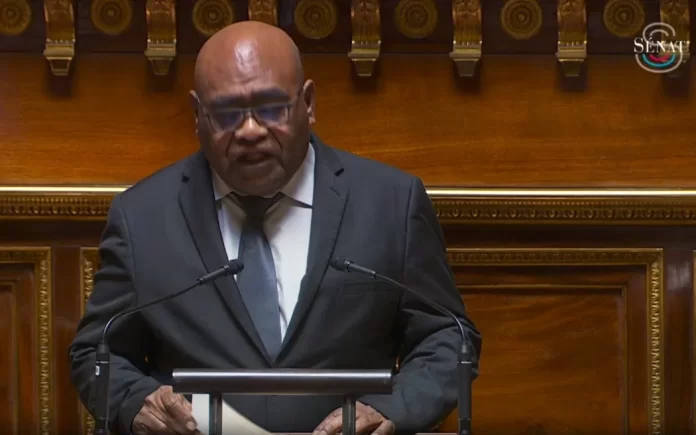The French Senate on Tuesday endorsed a Constitutional review project bearing significant modifications to the local electoral rules for New Caledonia, but with amendments.
The text passed with 233 votes in favour and 99 against.
It aims at modifying the conditions for French citizens to access a special list of voters for the elections in New Caledonia’s three provinces and the Congress.
Since 2007 the electoral for those local elections was described as “frozen” to only allow persons residing in New Caledonia before 1998.
However, the French government and its Home Affairs and Overseas minister Gérald Darmanin introduced earlier this year a new text for a “sliding” electoral roll allowing citizens who had been residing in New Caledonia for an uninterrupted ten years to access the local roll.
The move has been strongly contested by pro-independence parties in New Caledonia, who fear the new rules (which would allow up to 25,000 voters to access the local suffrage) will threaten the French Pacific entity’s political balances.
During heated debates last week and Tuesday for the vote, Senators sometimes traded vigorous words, with the left-wing parties (including Socialists and Communists) rallying in support of New Caledonia’s pro-independence parties and accusing Darmanin of “forcing the text through”.
New Caledonia’s pro-independence umbrella, the FLNKS, last week officially demanded that the French government withdraw its Constitutional amendment project and that, instead, a high-level mediatory mission be sent to New Caledonia.
Parallel to the Parliamentary moves, New Caledonia’s politicians, both pro and against independence, have been asked to sit together and engage in comprehensive talks in order to devise a new agreement that would replace the now-defunct Nouméa Accord, signed in 1998.
One of the Accord’s prescriptions was that three consecutive referendums on New Caledonia’s self-determination be held.
Critics of the amendment, including New Caledonia’s first pro-independence Senator Robert Xowie, also stressed that the manner in which it was “forced”, more than its substance, was a major flaw and that the French State should keep an “impartial” posture, consistent with the spirit of the Nouméa Accord.
“The point of no return has not been reached yet. We can still avoid lighting that spark which could inflame the whole situation”, Xowie said at the tribune.
He also called on the French Prime Minister’s office, once directly in charge of New Caledonia’s matters, to come back to the fore on those issues.
The ten-year uninterrupted residency condition was described by the government as “a reasonable compromise”, Darmanin’s delegate minister for Overseas Marie Guévenoux told the Senate on Tuesday.
While apologising for Darmanin’s absence, she told the Upper House those new self-imposed calendar challenges due to the change of implementation process would be hard to meet despite assurances earlier presented by the Senate.
She said there were provisions in the initial draft that would have allowed the government to react more quickly by way of decree in suspending the provincial elections and even postponing them once again to as far as “November 2025”.
After the Senate’s endorsement of the modified amendment, the text is however far from the end of its legislative journey: it is now due for debate before the National Assembly (Lower House) on 13 May.
If it passes again, its legislative journey is not finished yet as it has to be endorsed sometime in June 2024 by the French Congress, which is a gathering of both Upper and Lower Houses by a required majority of three-fifths.














